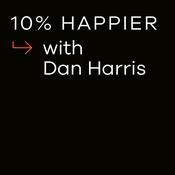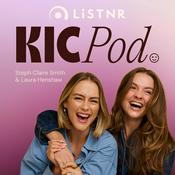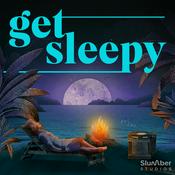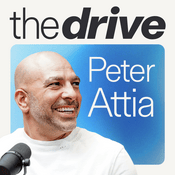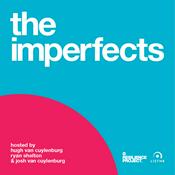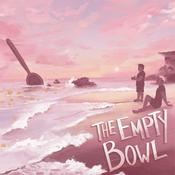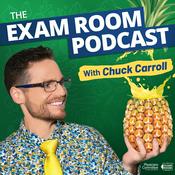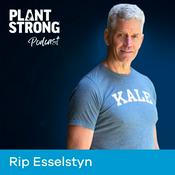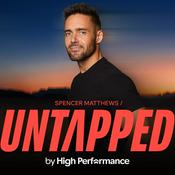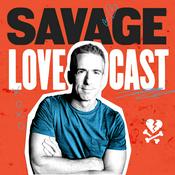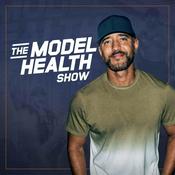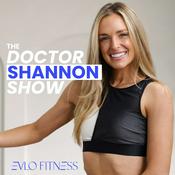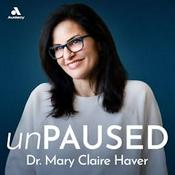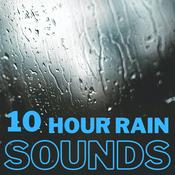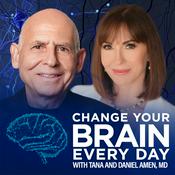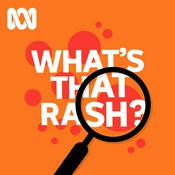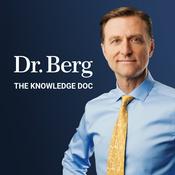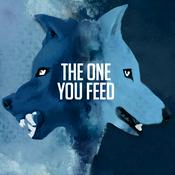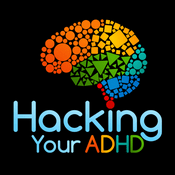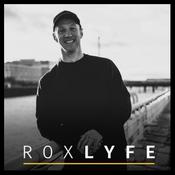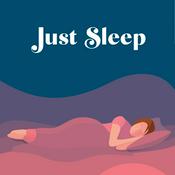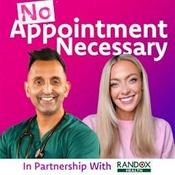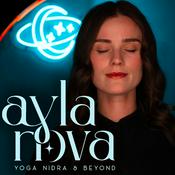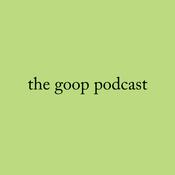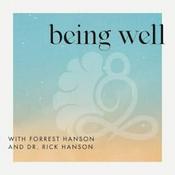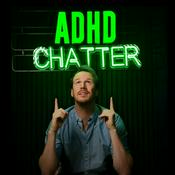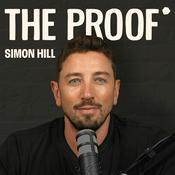163 episodes

The Physician and His Doctor | Bryant Lin, MD & Heather Wakelee, MD
13/1/2026 | 55 mins.
Dr. Bryant Lin is a primary care physician, educator, and researcher at Stanford University. In 2018, he founded CARE – the Center for Asian Health Research and Education. In 2023, CARE began a focused research effort investigating lung cancer in non-smoking Asians. In 2024, Dr. Lin was diagnosed with Stage 4 lung cancer, having never smoked in his life. After his diagnosis, Dr. Lin sprung into action. He began receiving care from Dr. Heather Wakelee – a Stanford oncologist specializing in lung cancer. Dr Wakelee is the Deputy Director of the Stanford Cancer Institute, the Division Chief of Medical Oncology, and a leader in the International Association for the Study of Lung Cancer. In this episode, we are privileged to be joined by both Dr. Lin and his oncologist, Dr. Wakelee.Over the course of our conversation, Dr. Lin describes the experience of receiving and living with a diagnosis that has been life changing for both him and his family. He details his remarkable efforts to leverage his diagnosis for the good of patients and rising medical professionals — and explains how spiritual practices have helped sustain him through this difficult time. Dr. Wakelee shares her approach to first visits with patients facing daunting cancer diagnoses, how she approaches grief, and the unique privilege and challenge of treating a colleague. Together, the doctor and his physician explore the value of hope in cancer, the dangers of false hope, and the importance of maximizing meaning in life — however much time is left. In this episode, you’ll hear about: 2:50 - Dr. Lin’s experience of being diagnosed with stage 4 lung cancer despite having never smoked14:20 - Dr. Wakelee’s approach to first visits with newly diagnosed lung cancer patients25:35 - Dr. Lin’s experience of shifting from the mindset of “doctor” to the mindset of “patient” 30:30 - How a doctor’s messaging can affect the patient’s outlook on their diagnosis43:00 - The common themes prevalent across religions and spiritual orientations that support patients in the navigation of serious illness50:24 - Advice to doctors for finding deeper meaning in medicineListen to Dr. Lin’s first appearance on The Doctor’s Art. If you enjoyed this episode, please subscribe, rate, and review our show, available for free on Spotify, Apple Podcasts, or wherever you get your podcasts. If you know of a doctor, patient, or anyone working in health care who would love to explore meaning in medicine with us on the show, feel free to leave a suggestion in the comments or send an email to [email protected] The Doctor’s Art Podcast 2026

Joyspan and Aging | Kerry Burnight, MD
23/12/2025 | 53 mins.
Many of us quietly accept the idea that our best self lives somewhere in the past — that youth is the ideal and aging is a slow erosion of who we really are. But what if getting older isn’t about losing our identity, but deepening it? What if the second half of life could be defined not by decline, but by “joyspan”—our capacity for meaning, connection, and contentment as we age?Our guest on this episode is gerontologist and author Kerry Burnight, PhD. As a professor at the University of California, Irvine School of Medicine, Dr. Burnight spent 16 years caring for older adults suffering neglect and abuse. She co-founded the nation’s first Elder Abuse Forensic Center, bringing together medicine, adult protective services, and law enforcement to protect vulnerable older adults. Her search for how to help people not just avoid harm, but truly thrive into their later decades led to her work on joyspan, culminating in her New York Times best-selling book Joyspan: The Art and Science of Thriving in Life’s Second Half (2025). Her work has been featured in outlets including The New York Times, The Guardian, BBC News, and Forbes Health.Over the course of our conversation, Dr. Burnight details the experience of working with older adults suffering from neglect and abuse, the importance of team camaraderie for getting through dark moments, and the need to humanize people going through dehumanizing situations. We discuss joyspan as well-being and fulfillment combined with longevity; how focusing on growing, connecting, adapting, and giving can increase joyspan; how the internalized belief that we have less to offer as we age threatens joyspan; and how older adults are uniquely positioned to contribute to society. Dr. Burnight reminds us that joyspan is a health habit, and the best time to start focusing on this health habit is today.In this episode, you’ll hear about: 3:00 - The story behind the first Elder Abuse Forensics Center11:45 - Dr. Burnight’s advice for frontline workers navigating cases of elder abuse15:05 - How social connection improves health outcomes 24:00 - Defining joy and how joy can coexist with aging33:15 - How our personal outlook on aging can impact our aging experience 44:30 - The four elements of joyspan 48:30 - Ways to build meaning into your life If you enjoyed this episode, please subscribe, rate, and review our show, available for free on Spotify, Apple Podcasts, or wherever you get your podcasts. If you know of a doctor, patient, or anyone working in health care who would love to explore meaning in medicine with us on the show, feel free to leave a suggestion in the comments or send an email to [email protected] The Doctor’s Art Podcast 2025

Don’t Just Do Something, Stand There | Brewer Eberly, MD
16/12/2025 | 53 mins.
Many of the world’s best physicians find it surprisingly difficult to answer the question: Why are you in medicine? In the long, arduous journey of medical training or within the technocratically-minded healthcare system, one can easily get lost in the life of the mind—and become estranged from the life of the heart.Our guest on this episode is Brewer Eberly, MD, a third-generation family physician and a fellow at Duke Divinity School’s Theology, Medicine, and Culture Initiative. Dr. Eberly grew up listening to physicians in his family discuss their work and was drawn to how life’s biggest questions are present in medicine. Now, his research focuses on the intersections of medicine, aesthetics, and theology — with a special focus on the “nourishment of weary clinicians.” Over the course of our conversation, Dr. Eberly shares how his early interests in art and literature continue to shape his life and work, and how the privilege of accompanying patients in all stages of life motivates his practice. We discuss how family medicine requires practitioners to have something to say about the well-lived life, and how this kind of wisdom is forged in silent contemplation. Finally, Dr. Eberly concludes with a profound and personal reflection on the question: What does it mean to willingly receive the suffering of someone that you cannot fix?In this episode, you’ll learn about: 2:36 - Dr. Eberly’s medical and creative origin stories 10:45 - What makes family medicine unique, and Dr. Eberly’s approach to his work22:30 - How Dr. Eberly tries to stay connected to the meaning of medicine29:00 - The “Good Surgeon Project”37:45 - Dr. Eberly’s view of the limitations of artificial intelligence in medicine 43:30 - Ways of engaging with and being present for the suffering of patientsIf you enjoyed this episode, please subscribe, rate, and review our show, available for free on Spotify, Apple Podcasts, or wherever you get your podcasts. If you know of a doctor, patient, or anyone working in health care who would love to explore meaning in medicine with us on the show, feel free to leave a suggestion in the comments or send an email to [email protected] The Doctor’s Art Podcast 2025

The Three Dimensions of a Fulfilling Life | Shigehiro Oishi, PhD
19/11/2025 | 56 mins.
We often confuse happiness with the absence of sadness, or a meaningful life with a productive one. The result might be a life that runs smoothly, but feels strangely flat — as if something essential is missing from the story. What if a truly good life isn’t just happy and meaningful, but also interesting?Our guest today is Shige Oishi, PhD, professor of psychology at the University of Chicago and author of Life in Three Dimensions (2025). Oishi pioneered the idea of psychological richness — the notion that a good life requires a diverse set of interesting, even disorienting experiences. As an expert in social ecology and well-being, his work spans more than 200 scientific articles and has been featured in outlets such as The New York Times, The Washington Post, and The Wall Street Journal.Over the course of our conversation, professor Oishi traces his own journey from an undergraduate in booming-economy Tokyo — surrounded by overworked, unhappy adults — to a career in psychology in the United States, where seeing professors live differently opened his eyes to alternative ways of being. We explore how cultures like Japan, the United States, Finland, and Denmark differ in what they chase and expect from life; why small, everyday joys and high-quality relationships matter more than grand achievements; and how “success” and “ambition” can quietly shape our sense of happiness.We then dive into psychological richness as a third dimension of the good life alongside happiness and meaning — one defined by variety, newness, and memorable stories, often colored by both positive and negative emotions. We discuss the risks of chasing only stability and efficiency; the importance of spontaneity; and the surprisingly simple ways we can cultivate psychological richness by staying curious and saying “yes” more often.In this episode, you’ll hear about: 3:00 - Oishi’s path to studying the psychology of wellbeing 8:45 - Rising competitiveness in American culture and how it is affecting lifelong happiness 13:30 - Why Finland and Denmark are regularly rated the happiest countries 15:55 - Whether there is a “correct” way to find meaning and happiness19:15 - What it means to be “psychologically rich” 28:00 - Balancing positive and negative emotions in a happy, meaningful, and psychologically rich life41:30 - Developing psychological richness 45:45 - How psychological richness can help address physician burnoutIf you enjoyed this episode, please subscribe, rate, and review our show, available for free on Spotify, Apple Podcasts, or wherever you get your podcasts. If you know of a doctor, patient, or anyone working in health care who would love to explore meaning in medicine with us on the show, feel free to leave a suggestion in the comments or send an email to [email protected] The Doctor’s Art Podcast 2025

A Humanist Approach to Chaplaincy | Greg Epstein
04/11/2025 | 58 mins.
When a religious person is isolated from their community, whether due to hospitalization or military service, they can often rely on a chaplain for spiritual support. But where does a non-religious person turn when facing the same circumstances? And what tools do they have for meaning making?Our guest is Greg Epstein, humanist chaplain at Harvard and MIT and author of the New York Times bestselling book Good Without God. As a humanist chaplain, Greg has spent his career building ethical communities that are united around the idea that human sociality and interdependence are a sufficient foundation for a meaningful life. Greg’s writings have been published widely, including in TIME magazine and The Washington Post, and he is a prominent public speaker in humanist and interfaith communities. In our conversation, Greg explains the role of a humanist chaplain, why a humanist chaplain is not necessarily an oxymoron, and how he guides individuals on their meaning-making journey. We discuss Greg’s candidate for the world’s most powerful word and a humanist’s argument for pursuing the work of healing over wealth. And finally, Greg walks us through the thesis of his most recent book Tech Agnostic – how technology has become a religion of its own, with a particular set of downsides. In this episode, you’ll hear about: 2:30 - Mr Epstein’s personal definitions of ‘chaplain’ and ‘religion’ 8:23 - How Mr. Epstein uses a humanist framework to guide meaning-making24:35 - Is there an absolute ‘good’? 33:25 - The risks of technology as a religion45:30 - Advice for medical professionals engaged in the work of healing while operating within a system built for profitVisit our website www.TheDoctorsArt.com where you can find transcripts of all episodes.If you enjoyed this episode, please subscribe, rate, and review our show, available for free on Spotify, Apple Podcasts, or wherever you get your podcasts. If you know of a doctor, patient, or anyone working in health care who would love to explore meaning in medicine with us on the show, feel free to leave a suggestion in the comments or send an email to [email protected] The Doctor’s Art Podcast 2025
More Health & Wellness podcasts
Trending Health & Wellness podcasts
About The Doctor's Art
Listen to The Doctor's Art, 10% Happier with Dan Harris and many other podcasts from around the world with the radio.net app
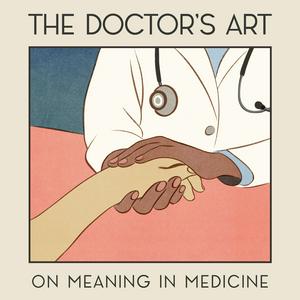
Get the free radio.net app
- Stations and podcasts to bookmark
- Stream via Wi-Fi or Bluetooth
- Supports Carplay & Android Auto
- Many other app features
Get the free radio.net app
- Stations and podcasts to bookmark
- Stream via Wi-Fi or Bluetooth
- Supports Carplay & Android Auto
- Many other app features


The Doctor's Art
download the app,
start listening.
